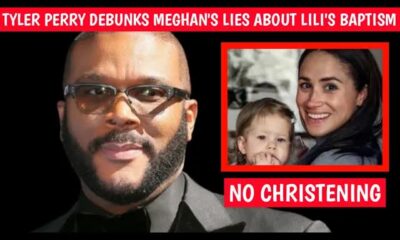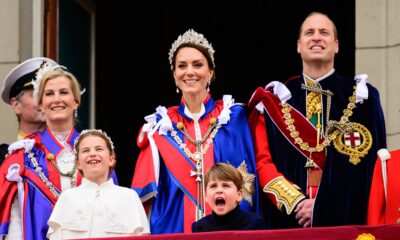Must Read
The Legacy of Lilibet: A Royal Name Sparking Controversy
In the world of royalty, names carry profound significance, often steeped in tradition and personal history.
Recently, the name of Princess Lilibet Diana, daughter of Prince Harry and Meghan Markle, has ignited discussions about family ties and royal customs.
The couple chose to honor Harry's grandmother, the late Queen Elizabeth II, by naming their second child after her cherished childhood nickname, Lilibet.
This decision was not merely a nod to familial affection; it has opened up a broader dialogue about the evolving nature of the British monarchy.
Born on June 4, 2021, at Santa Barbara Cottage Hospital, Princess Lilibet was welcomed into the world during a tumultuous time for the royal family.
Harry and Meghan had stepped back from their royal duties in early 2020, relocating to California, which had already strained their relationships with other royals.
Despite this distance, the couple's choice to name their daughter Lilibet seemed to reflect their desire to maintain a connection to the royal legacy, even as they carved out a new life for themselves.
The name Lilibet, a term of endearment used by the Queen's close family, carries deep emotional resonance.
It originated from a childhood mispronunciation of Elizabeth, becoming a symbol of intimacy within her family, particularly with her late husband, Prince Philip.
For Harry, naming his daughter after his grandmother likely represented both love and a longing to preserve his lineage, despite his family's complicated dynamics.
However, the decision was met with mixed feelings within the royal circle.
While many viewed it as a heartfelt tribute, others considered it an overstep.
Questions arose about whether Harry and Meghan had truly sought the Queen's permission to use such a personal name.
According to a spokesperson for the couple, Harry had discussed the name with his grandmother before making the announcement, asserting that she had given her blessing.
Yet, the nuances of royal relationships often complicate such assertions.
Royal biographer Robert Hardman provided insight into the Queen's reaction, suggesting she was not entirely pleased with the decision.
Reports indicated that she expressed frustration to palace aides, feeling that her name was something uniquely hers, now shared with the world in a way that felt intrusive.
This revelation cast a shadow over the couple's claims of having received full approval, raising eyebrows about the true nature of their communication with the monarch.
The timing of Lilibet's birth added another layer of complexity.
Just over a year after Harry and Meghan distanced themselves from royal responsibilities, the arrival of their daughter underscored their ongoing separation from the monarchy.
Their high-profile interview with Oprah Winfrey earlier in 2021 had already stirred the pot, and the choice of name seemed to highlight their struggle to balance familial ties with their newfound independence.
As Princess Lilibet grows, her name continues to be a topic of conversation, especially given her limited public appearances.
Harry and Meghan have made it a priority to protect their children's privacy, aiming to shield them from the relentless media scrutiny that typically accompanies royal life.
Yet, the name Lilibet itself remains a potent symbol, intertwining their family story with the legacy of the British monarchy.
The royal family's response to the name choice has been cautious.
While Buckingham Palace initially opted for silence, insiders hinted that the Queen's feelings were more complex than the official line suggested.
Some family members viewed the use of such an intimate name as a breach of royal decorum, particularly in light of the tensions that had already surfaced.
Despite the controversies, the Sussexes have maintained that their choice was made with respect and love.
They hoped that naming their daughter after the Queen would serve as a bridge, fostering healing within the family.
However, the reality of royal dynamics is rarely straightforward, and the implications of such a decision extend far beyond a simple name.
Princess Lilibet embodies a new chapter for the royal family, one where traditional roles are being redefined.
As she approaches her third birthday, her name continues to evoke discussions about the future of the monarchy and the place of the Sussexes within it.
For many, she represents a shift in royal identity, where the constraints of duty are challenged by personal choices.
Ultimately, the story of Princess Lilibet Diana is a poignant reminder of how names can encapsulate both heritage and change.
While Harry and Meghan's choice was rooted in personal affection, it also reflects the ongoing tension between royal tradition and modernity.
As the young princess grows, her name will undoubtedly remain a focal point in conversations surrounding the evolving landscape of the British royal family.
In this ever-changing narrative, the legacy of Lilibet serves as a lens through which we can view the complexities of family, duty, and identity.
As we wait to see how this story unfolds, one thing is clear: the name Lilibet will continue to resonate within the royal discourse for years to come.








































